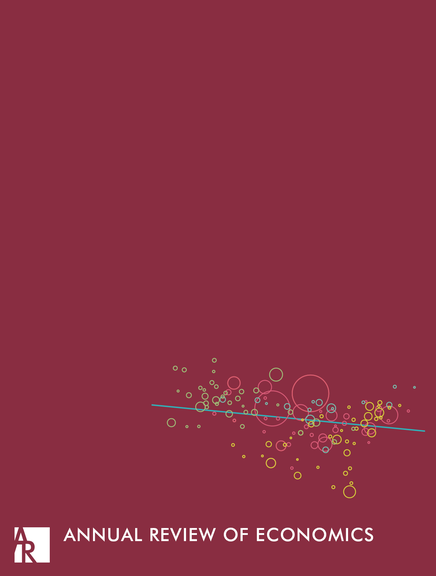投票交易能提高福利吗?
IF 11.4
2区 经济学
Q1 ECONOMICS
引用次数: 0
摘要
选民有很强的动机通过交换选票来增加自己的影响力,即在选民偏好较强时获得他人的选票,而在选民偏好较弱时放弃选票。但是,投票交易福利是提高了还是降低了?对于长期以来被认为是集体决策核心的做法,缺乏明确的答案令人惊讶。我们回顾了理论文献,并在可用的情况下进行了相关的实验测试。我们首先分析投票交换,即投票交换。然后,我们关注投票市场,在那里,选票可以与数字进行交易。我们总结了允许选民在决策中转移选票的程序,也就是说,允许一个人只与自己交换选票。我们发现,投票交易和投票市场通常是低效的;通过允许选民在决策中分配选票,可以获得更令人鼓舞的结果。本文章由计算机程序翻译,如有差异,请以英文原文为准。
Does Vote Trading Improve Welfare?
Voters have strong incentives to increase their influence by trading votes, acquiring others’ votes when preferences are strong in exchange for giving votes away when preferences are weak. But is vote trading welfare improving or welfare decreasing? For a practice long believed to be central to collective decisions, the lack of a clear answer is surprising. We review the theoretical literature and, when available, its related experimental tests. We begin with the analysis of logrolling, the exchange of votes for votes. We then focus on vote markets, where votes can be traded against a numeraire. We conclude with procedures allowing voters to shift votes across decisions—that is, allowing one to trade votes with oneself only. We find that vote trading and vote markets are typically inefficient; more encouraging results are obtained by allowing voters to allocate votes across decisions.
求助全文
通过发布文献求助,成功后即可免费获取论文全文。
去求助
来源期刊

Annual Review of Economics
ECONOMICS-
CiteScore
9.70
自引率
3.60%
发文量
34
期刊介绍:
The Annual Review of Economics covers significant developments in the field of economics, including macroeconomics and money; microeconomics, including economic psychology; international economics; public finance; health economics; education; economic growth and technological change; economic development; social economics, including culture, institutions, social interaction, and networks; game theory, political economy, and social choice; and more.
 求助内容:
求助内容: 应助结果提醒方式:
应助结果提醒方式:


